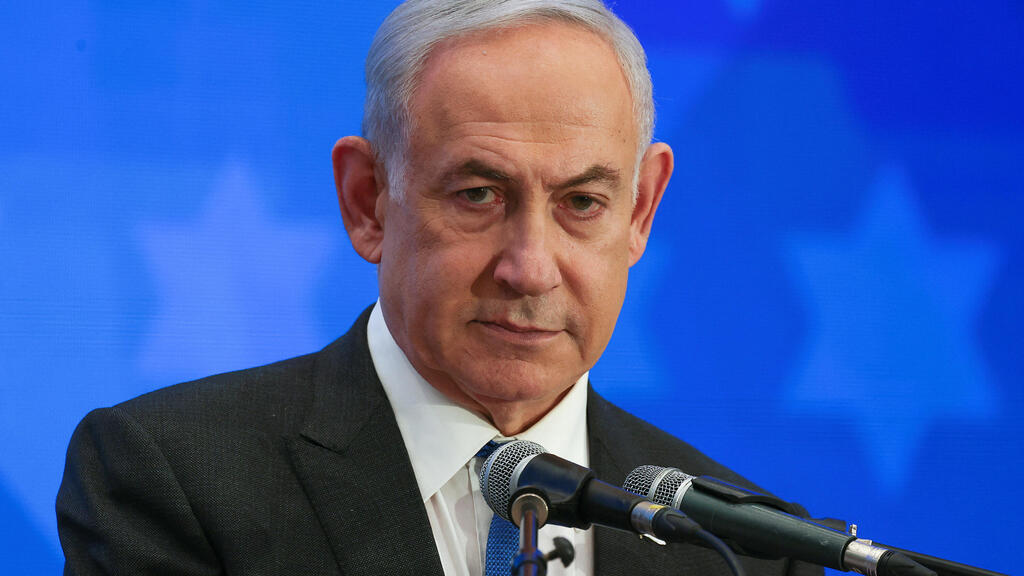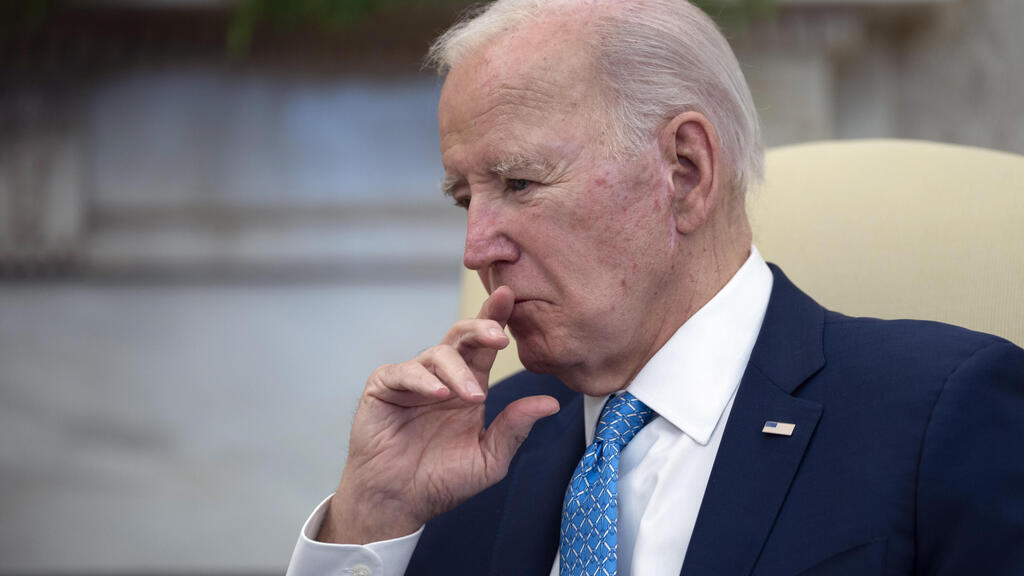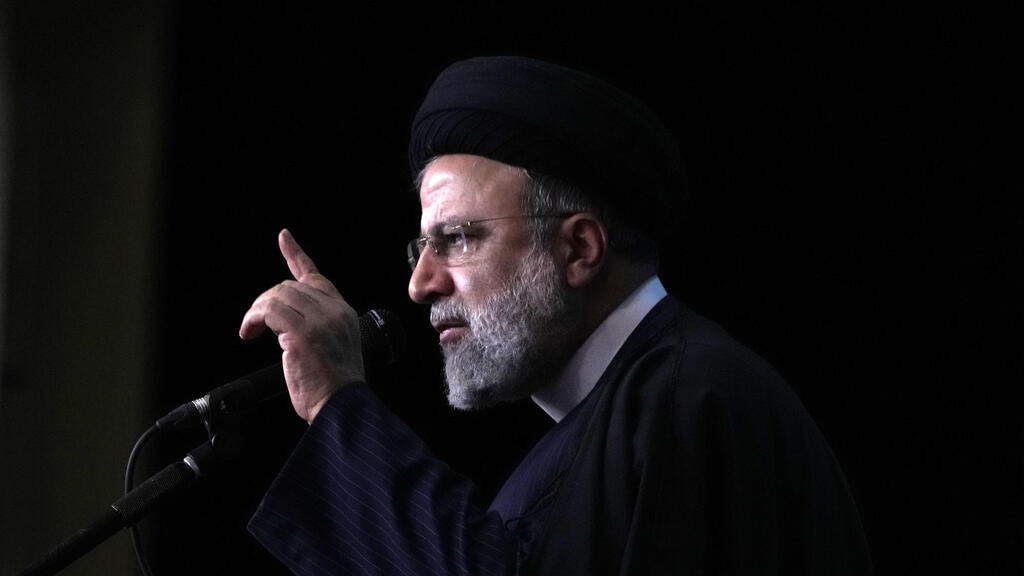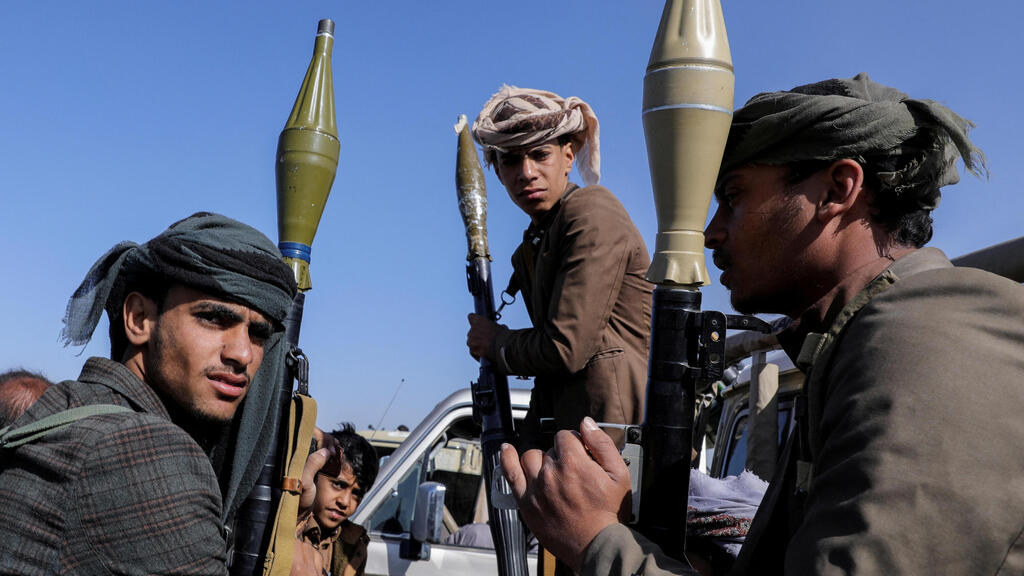The “Annual Threat Assessment of the U.S. Intelligence Community” was finalized last February and declassified as the country’s intelligence chiefs testified before the U.S. Senate Select Committee on Intelligence on March 11, 2024. Some of the statements contained in the report and in the subsequent testimony should raise bright red lights in Israel not to mention Washington itself and beyond.
More stories:
To begin with the report masquerades political bias as intelligence. While it purportedly “focuses on the most direct, serious threats to the United States primarily during the next year, “ (p.3), it states that Prime Minister Benjamin Netanyahu’s “viability as a leader as well as his governing coalition of far-right and ultraorthodox parties who pursued hard line policies on the Palestinian and security issues may be in jeopardy.”
Incredibly it goes on to state: ”Distrust of Netanyahu’s ability to rule has deepened and broadened across the public from its already high levels before the war, and we expect large protests demanding his resignation and new elections. A different, more moderate government is a possibility.” (p.25)
It is unclear, to say the least, how does this segment belong in an assessment of the “most direct, serious[short-term] threats” to the U.S. On the contrary one may even be excused if he concluded that American intelligence would be pleased by, if not in fact tacitly encouraging, the toppling of the Netanyahu government.
On top of the strong whiff of politics, the statement smacks of poor intelligence work. The community’s detection of chances of a “more moderate government“ emerging in Israel borders on incomprehensible cluelessness. U.S. intelligence either missed entirely the political consequences of the Hamas shocking attack or has made a conscious decision to ignore the signs of a tectonic shift that the ghastly massacre has had on the Israeli public’s core beliefs.
Ironically a day after the report’s release Gideon Sa’ar, whose New Hope party entered into a union with (Biden’s favorite) Benny Ganz’s National Unity party, announced the breakup of the arrangement. The move was hardly a surprise. On the contrary for weeks speculation was rife in the Israeli media that Sa’ar was contemplating a dissolution of the “marriage” with Ganz possibly even a return to his original breeding grounds—the Likud party.
Even Netanyahu’s greatest critics conceded that the Sa’ar’s split was good news for the prime minister. Sa’ar and his MKs give the current government a stable 65-seat majority. Little wonder that many members of the current government shook hands with Sa’ar’s lawmaker, seeing them as a lifeline for the current government, as it faces pressure to resign and go to elections.
Zeev Kam, a senior political correspondent for Israeli public broadcaster Kan was quoted by the Jewish News Syndicate on March 13, as saying “In my opinion, this [breakup] can actually extend the life of the government. After all, to build himself as a right-wing party, Sa’ar needs time. After the split from Gantz, Sa’ar has to prove to the right-wing public that, while it is true that he was with Gantz—who is not considered right-wing by the voters—he is a real right-winger. Therefore, he needs time…”
The fact remains that Sa’ar is and has been a bona fide rightist politician who upon “divorcing” Ganz declared ”I see it as our role in the emergency government to make sure that despite all the difficulties and pressures, including the international ones – we will conduct the war in Gaza to its conclusion…From this moment on, I intend to act with additional political strength that will lead to the formation of an alternative, and I emphasize an alternative of a strong political force of the Israeli right, as the general public desires.”
The unified consensus among Israeli political analysts was that the timing of Sa’ar’s split reflects an accurate reading of the country’s political map given the shift in the Israeli public’s sentiments. The new mood was highlighted by the Israeli political analyst Amit Segal in a Wall Street Journal opinion piece on March 13, which pointed out that the Biden Administration's outlook on the situation in Israel and among the Palestinians was rooted in fantasy: “When Joe Biden and officials in his administration talk about the Israelis and the Palestinians, they describe two peoples that don’t exist in reality.”
Thus the US leadership believes that the majority of Palestinians strive for peace and reject the Hamas terror organization. In contrast, Segal noted, the reality is quite different. "According to a November survey by Arab World for Research and Development, affiliated with Ramallah-based Birzeit University, 59% of Palestinians 'extremely support' the Oct. 7massacre, and another 16% 'somewhat support' it.”
Segal went on to state that the picture of the Israeli public painted by the US administration is far from reality as well: "Vice President Kamala Harris this week uttered a statement about Israel of the kind typically reserved for dictatorships: 'It’s important for us to distinguish or at least not conflate the Israeli government with the Israeli people.'"
However, Segal indicates, while there is a significant contrast between Israel’s leadership and its citizens— it is the opposite of what is portrayed by the U.S. government, being that the Israeli public is far more right-wing than the policies of its government.
"While Mr. Netanyahu has previously voiced support for a Palestinian state, a February survey conducted by Midgam for Channel 12 News found that 63% of the Israeli public strongly opposes such a state under any circumstances. While the cabinet implicitly agreed that a renewed Palestinian Authority would control Gaza, 73% of those who expressed an opinion in the survey opposed it," Segal wrote.
In sum the unfolding realignment of the parties in Israel and the transformation in the political leanings of the Israeli public post October 7, processes which were afoot for some time and widely anticipated and covered by the Israeli media, were strangely missed by the U.S. intelligence. What is more the latter was reported to have recently intensified its spying on Israel.
An alternative explanation for this abject collection failure is that the U.S. intelligence community has become a partner in the Biden Administration’s election campaign. The President is pushing the chimera of the two-states solution to the Israeli-Palestinians conflict hoping it would spur the normalization of Saudi- Israeli relations. Such a “breakthrough “ will counterbalance the achievement of the Abraham Accords ( between Israel the UAE and Bahrain) under President Donald Trump and testify to Biden’s foreign policy leadership. More importantly, this game-plan, if realized, will do wonders for Biden’s reelection chances as it will certainly placate the “progressive“ wing of the Democratic Party and its Muslim and other pro-Palestinian supporters in the key battleground state of Michigan and Minnesota.
The U.S. intelligence, this interpretation suggests, was mobilized to support the Biden administration’s push for the ouster of the Netanyahu government which Washington alleges is hampering the fulfillment of its hair-brained two-state “solution” to the Israeli-Palestinian conflict. Rather than highlighting the unmistakable indications that, after October 7, the Biden’s plan was dead in the water, intelligence has been recruited to paint Netanyahu not only as the prime obstacle to implementing a practicable and sound political solution but one whose continued stay in power endangers Israel’s future. His removal, it is suggested, may finally pave the way to the plan’s (blessed) application so that Israel can finally reach the promised land and live in peace and security.
Regarding the Gaza war itself the report notes that the Hamas-led October 7 onslaught and Israel’s responding military campaign have “increased tensions throughout the region as Iranian proxies and partners conduct anti-US and anti-Israel attacks, both in support of Hamas and to pressure the United States.” (p.24) One would think that a major product of the U.S. intelligence should be of greater value or insight than a cursory reading of the daily newspapers would yield.
Still the report goes on to state that “Israel probably will face lingering armed resistance from Hamas for years to come, and the military will struggle to neutralize Hamas’s underground infrastructure, which allows insurgents to hide, regain strength and surprise Israeli forces.”(p.25)
The U.S. National Intelligence Director Avril Haines, in her testimony before the Select Committee, went even further stating that “it is likely that the Gaza conflict will have a generational impact on terrorism.” The Director no doubt is fully aware that the past two decades at least were hardly marked by peace being propagated by Palestinian leaders despite the 1993 Oslo Accords and Israel’s 2005 withdrawal from the Strip, and that a new generation of kids was being taught in the Hamas and Palestinian Authority’s schools to never give up the “struggle” and drilled in ways to kill Jews. But her implication was clear—carrying on with the current war against Hamas only enshrines the Palestinian terrorist threat to Israel’s security.
The intelligence disregards the simple fact that if it chooses to conduct guerrilla operations instead of just hiding, Hamas would be exposing whatever was left of its “order of battle” to the risk of elimination by the IDF. Hamas, in other words, could be playing into Israel’s hands.
By the same token, it could have been expected that the report would recognize that Hamas’s decision to field a terrorist “army” comprising specialized branches, brigades, regiments, etc. and aimed to take on the IDF en masse a la October 7, was a fatal strategic mistake.
nothing is said about the many Arab and even Palestinian voices condemning Hamas harshly for the “second Nakba”
Instead it is astounding that the IDF’s operational successes in Gaza are entirely ignored. The world-class employment of the combined-arms approach by the IDF which dismantled 18 out of 24 Hamas battalions swiftly, while suffering fewer casualties than expected, and which is now studied by militaries around the world as a textbook counter-terror campaign, goes without mention. The fact that some two thirds of the Hamas terrorist army’s “soldiers” have been either killed, injured or taken prisoner is disregarded. As well nothing is said about the many Arab and even Palestinian voices condemning Hamas harshly for the “second Nakba” (repeat of the “catastrophe“ of 1948) that its “reckless adventurism” and “disregard” for civilian lives has ushered into Gaza.
Ordinarily a threat assessment would have also included a reference to the capabilities of Hamas—especially its rocket arsenal— all but eliminated making their reconstitution improbable. Moreover such an analysis would have noted that Israel under the Netanyahu government is bent on controlling the Strip’s security for years to come to assure that Hamas cannot recover and that this position is widely supported by the Israeli public.
Worst of all, the report fails to mention that, after years of “playing” defense the IDF, in the wake of October 7, shifted back into an offensive doctrine. In view of Israel’s extensive active and passive defenses, the transformation could turn Israel into a trigger-happy ally. Given that the country faces multiple active fronts presently, newly launched IDF’s offensives would be likely and could conceivably result in some ripple effects impacting the U.S. regional presence and assets— an outcome which should have been part of an assessment seeking to evaluate potential threats to U.S. interests.
The Hezbollah and Iran threats
Turning to Hezbollah and its Iranian masters, the report assesses that both Israel and Iran are attempting to avoid all-out war, though conflict with the Lebanon-based terror group Hezbollah could escalate. (p.18)
The U.S. intelligence states that Tehran “will try to leverage recent military successes through its emboldened threat network.” Iran, it says, will continue to “demonstrate the efficacy of leveraging the members of…[this] loose consortium of likeminded terrorists and militants actors….and to flex the network’s military capabilities…while shielding Iranian leaders from significant consequences.” (p.18) While it recognizes that Iran faces “challenges” those are supposedly limited only to “internal” ones. (p.18).
It is unclear what are Iran’s “recent military successes”. If this description refers to the Hamas October attack it should have qualified its determination as at least “a short-term” success. Incredibly there is no mention that Iran’s proxy strategy and the mullahs themselves are under great stress because of overreach and the inherent military weakness of each of the links of Iran’s “threat network” when compared to an ultra-modern, highly-motivated army like the current IDF. This basic deficiency will continue to frustrate the mullahs at least as long as Iran’s prime interest is to avoid direct involvement in the conflicts and steer clear of confrontation with either Israel and/ or the U.S. which the report cites twice. (pp. 18, 24)
Moreover the question arises as to what led the U.S. intelligence to conclude that Iran’s “threat network” was “emboldened,” given the pressures exerted by Israel on the Iranian web in Gaza, Lebanon, Syria, and the West Bank. Nor is there any reference to the fact that the new activism displayed by Iran’s surrogates in Yemen, Syria and Iraq vis-a-vis the U.S. may be at least partially linked to the feebleness of the latters’ response to their aggressions. Finally, Tehran’s ability to eschew punishment so far is entirely related to the Biden Administration’s strong distaste for any large-scale military entanglement in the Middle East. After all the U.S. elections are fast approaching and America had already made a “strategic pivot” to the Pacific under (Biden’s political soulmate) President Barrack Obama.
Most of all, if Iran and its proxy strategy are so successful why would the mullahs, during secret talks with the U.S. in Oman, push for a ceasefire in Gaza as early as in January, according to multiple media sources? (The meetings were subsequently confirmed by both Washington and Tehran.)
The Iranians would not only like to rescue its agent Hamas from certain destruction but are likely losing sleep over the very real possibility that Israel might soon turn to deal with the Hezbollah threat from Lebanon. They fear such an offensive would result in the loss of the crown jewel of their proxy strategy and importantly the strategic deterrent protecting Iran’s nuclear program from attack. No wonder that Hezbollah has repeatedly announced that a ceasefire in the Israel-Hamas war will also lead to it stopping its attacks on northern Israel. Even the U.S. intelligence recognizes the Hezbollah’s interest in avoiding a “broader war [with Israel] that would devastate [it] and Lebanon.” (p.24.)
The omission, it appears, is designed to save the intelligence from having to explain why its warnings about Iran’s malign actions are made while the Biden Administration is doing its utmost to preserve the mullahs’ strategy by relentlessly pressing Jerusalem to agree to a ceasefire exactly bwhen Israel is on the verge of eliminating or significantly impairing the “emboldened” Iranian “threat network.”
Further, while the report covers Iran’s nuclear activities, it fails to mention that the pressures in Iran to dash to the bomb must have mounted in the wake of the ongoing crisis in the Middle East. Similarly, there is no word regarding the real likelihood that Tehran may exploit the prolonged U.S. election campaign period and the Biden Administration’s heightened (characteristic) reluctance to resort to military means to cross the nuclear threshold.
Such an Iranian decision would be a game-changing act which will fundamentally change Israel’s strategic calculations and should have certainly been recognized in a survey of potential threats which may confront America “during the next year.”
Global terrorism threat
When it comes to the global terrorist threat the U.S. intelligence names three potential sources—ISIS, al Qaeda and Hezbollah. Hamas is not mentioned.
The omission tends to confirm the information reported by the Wall Street Journal on November 1. Citing “U.S. officials familiar with the shift,” the paper said that U. S. intelligence agencies all but stopped spying on Hamas and other violent Palestinian groups in the years after the Sept. 11, 2001, terrorist attacks on the U.S. Instead, it is said, intelligence directed resources to the hunt for the leaders of al Qaeda and, later, Islamic State. Accordingly, American intelligence ceded responsibility to Israel, confident that its seasoned security services would detect any threat.
Also in the past Hamas claimed its policy was to limit attacks to Israel, the occupied West Bank and the Gaza Strip. Yet indications are the organization has been trying to expand its operations and alliances far beyond these areas. For example, according to Berlin’s Federal Office for Protection of the Constitution (BfV) there are thought to be around 450 Hamas members in Germany. In 2022, the BfV warned that “Hamas sees Western countries such as Germany as refuge in which the organization can concentrate on collecting donations, recruiting new supporters, and spreading its propaganda.”
Hamas and the Houthi rebels in Yemen held “an important meeting” earlier that month to discuss synchronizing their actions.
Indeed these “peaceful“ activities may have been abandoned lately. In a statement following the arrests of the organization’s operatives by Danish, German and Swedish authorities last December, Israel’s Mossad announced that its agents working with Swedish security forces raided a Hamas “network“ which planned to attack the Israeli embassy in the country and “establish ties to criminal organizations in Europe.” An agency’s statement, cited by Reuters on January 13, said a multi-national investigation received information that the Hamas network took orders from a group command post in Lebanon and had also intended “to procure paragliders“ and to “activate members” of criminal groups in Europe.
On March 15, AFP cited “sources from Hamas and Palestinian Islamic Jihad” as disclosing that “senior figures” from Hamas and the Houthi rebels in Yemen (more formally Ansar Allah) held “an important meeting” earlier that month to discuss synchronizing their actions. Reportedly, the groups discussed “mechanisms to coordinate their actions of resistance” for the “next stage” of the war in Gaza.
Soon after the Houthis announced that they will expand their operations and start hitting vessels in the Indian Ocean, as well as ships seeking to avoid the often targeted Bab-el-Mandeb strait by circumnavigating the Cape of Good Hope route in the Atlantic Ocean, near the southern coast of Africa. The Houthi military spokesperson Brig. Gen. Yahya Saree claimed that his Yemenite forces have already conducted "three operations" against three Israeli and U.S. ships in the Indian Ocean using several anti-ship missiles and drones, “achieving their objectives.”
Domestic threats
To its credit the report correctly notes that “Iran …remains committed to its decade-long effort to develop surrogate networks inside the United States…[it] previously has conducted lethal operations in the United States.”(p.18)
However, it fails to warn of some other looming domestic dangers. No mention is made of pro-Palestinian mobs comprising of Muslim immigrants and other extremists who are bent on fomenting chaos and violence to disrupt normal lives, intimidate local pro-Israel politicians, as well as snuff any Jewish voice from having a say in U.S. politics. Nor is there any indication that the FBI, whose director was on the panel, views the rise in neo-Nazi activism as well as the explosion of antisemitism across America as posing an immediate heightened threat domestically. At the minimum a recognition that any one of these elements could be financially supported and manipulated by America’s external enemies like Russia, China and Iran to tamper with or swing the upcoming U.S. elections may have been proper.
The inescapable conclusion is that the U. S. intelligence community produced a report which smacks of political bias and doubtful professionalism aimed to portray Israel’s war against Hamas as largely futile if not a counterproductive maneuver by Prime Minister Benjamin Netanyahu.
American intelligence it appears has thus been co-opted into supporting the Biden administration’s election-generated pressure for a ceasefire.
The lack of an official intelligence assessment of the strategic implications of the Hamas monstrous attack on Israel as another manifestation of the Jihad waged by Islamists against infidels ( i.e. Western civilizations) remains simply inexplicable. After all the consequences of this ongoing religious war may be felt far beyond Israel’s borders.
 Avigdor Haselkorn
Avigdor HaselkornAs Czech Ambassador to Israel Dr. Veronica Kuchynova Smigolova stated in an interview with Ynet on March 13, “we are concerned that if [ Islamic ] terrorism is not stopped in Gaza it will also spread to Europe.”
It is thus difficult to decide what poses a greater peril for the free world—a politicized or an incompetent U.S. intelligence. But either one of these ills leads to the following recommendation— while the October 7, fiasco must engender a wholesale restructuring of Israeli intelligence, Washington should urgently follow suit if it seeks to avoid a similar catastrophic srategic surprise.
Dr. Avigdor Haselkorn is a strategic analyst and the author of books, articles and op-eds national security issues.






